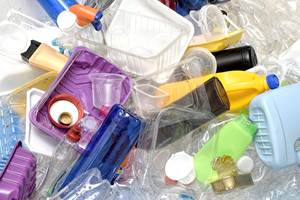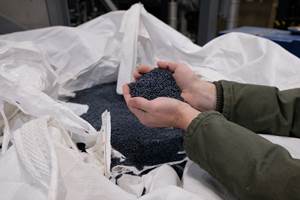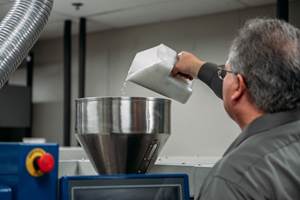PLASTICS’ Carteaux Challenges NY Times Editorial on Plastic Bags
A pro-plastic bag ban editorial from the New York Times did not sit well with the plastics industry.
A Sept. 14 editorial from the New York Times staff stated that the U.S. should follow Kenya’s lead emulating that country’s plastic bag ban where manufacturers and importers of plastic bags now face fines of $19,000 to $38,000 or four-year jail terms. Retailers will no longer sell plastic bags, and if a shopper has one, it might be taken away.
In response to this editorial, Plastics Industry Association President and CEO Bill Carteaux wrote a letter to the editor challenging the premise that urged the U.S. to follow Kenya’s lead on plastic bag environmental policy.
In his letter, he points out that instead of banning, there should be more of a focus on recycling:
Instead of following Kenya’s lead, we should build on initiatives that are already working in the United States to promote the recycling and reuse of plastic. Reducing litter is everyone’s responsibility, which is why our members have installed 30,000 recycling drop-off points nationwide and are continuing to grow plastic film recycling.
It’s not just Kenya taking such drastic measures, Costa Rica is looking to become the first country to eliminate single-use plastics. Type in ‘plastic bag ban’ on Google and you get about 1,240,000 results, even HuffPost has a section on its site dedicated to it (featuring both sides of the debate).
It’s an issue that’s not going away anytime soon. However, groups like the American Chemistry Council’s Flexible Film Recycling Group (FFRG) are working to increase the collection and recycling of all flexible films as well as educate the public on recycling. It recently has released two new online tools and an updated website designed to help grow the recycling of plastic wraps, bags and other flexible polyethylene (PE) film packaging. These free tools provide resources to a wide range of audiences—including consumers, recycling coordinators, local and state governments, and businesses—about this material. They aim to help these audiences learn more about what material can be recycled, how to properly recycle it, and how to grow plastic film recycling at a local level. Plastic film is one of the fastest growing areas of recycling with collection increasing nearly 84 percent since just 2005, the group stated.
The “Roadmap to WRAP” tool is an interactive guide with step-by-step instructions to help recycling coordinators, and local and state governments implement plastic film recycling campaigns and programs. The Roadmap contains free educational materials such as downloadable posters, tip cards, and bookmarks to educate residents about plastic film recycling; a work plan, plastic film recycling audit template, and checklists to help recycling coordinators organize and launch a campaign; along with insights, tips and examples from prior campaigns. These resources were designed to help support these campaigns and increase post-consumer and commercial film recycling.
The “Value Chain Case Study” tool provides a visual depiction of PE film recycling to demonstrate the value proposition for recycling this material to attract other stakeholders. It explains the steps in the PE film recycling process—from collection to end use—and profiles businesses that are leaders in plastic film recycling. The profiles recognize these businesses, such as grocers, retailers, recycling businesses, and brand companies for their leadership and serve as examples for other businesses interested in starting or growing plastic film recycling operations.
Related Content
Compatibilizers Aid Recycling & Upcycling of Mixed Resins
Compatibilizers are proving their worth in boosting critical properties such as impact/stiffness balance of PCR and PIR blends of polyolefins and other plastics.
Read MoreNew Facility Refreshes Post-Consumer PP by Washing Out Additives, Contaminants
PureCycle prepares to scale up its novel solvent recycling approach as new facility nears completion.
Read MoreClothing Reseller Finds Recycling Pathway
A partnership between ThredUp and Azek will recycle clothing bags to composite deck products.
Read MoreMarket Changes Spur Industrial Recycler to Enhance Capabilities in Clear Plastic Reprocessing
Butler MacDonald found new business and flexibility thanks to a big step-up in purging efficiency.
Read MoreRead Next
Advanced Recycling: Beyond Pyrolysis
Consumer-product brand owners increasingly see advanced chemical recycling as a necessary complement to mechanical recycling if they are to meet ambitious goals for a circular economy in the next decade. Dozens of technology providers are developing new technologies to overcome the limitations of existing pyrolysis methods and to commercialize various alternative approaches to chemical recycling of plastics.
Read MoreHow Polymer Melts in Single-Screw Extruders
Understanding how polymer melts in a single-screw extruder could help you optimize your screw design to eliminate defect-causing solid polymer fragments.
Read More

















.png;maxWidth=300;quality=90)






